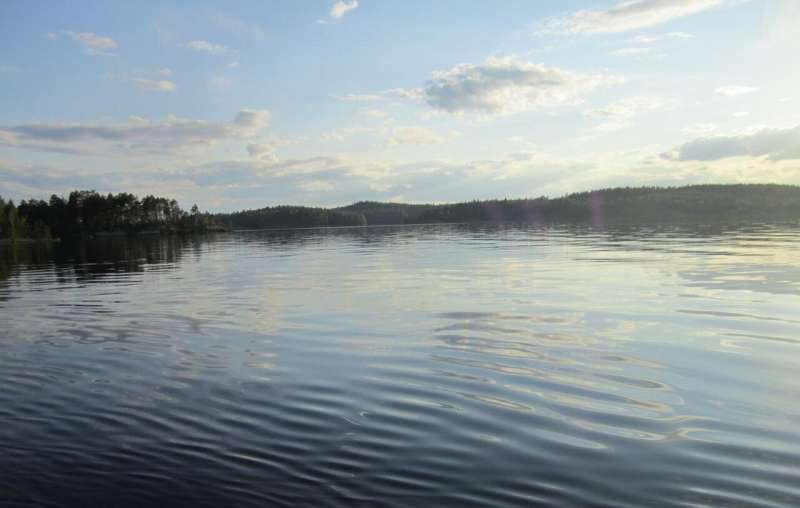Less ice, more methane from northern lakes: A result from global warming

Shorter and warmer winters lead to an increase in emissions of methane from northern lakes, according to a new study by scientists in Finland and the US. Longer ice-free periods contribute to increased methane emissions. In Finland, emissions of methane from lakes could go up by as much as 60%.
An international study by scientists from Purdue University in the US, the University of Eastern Finland, the Finnish Environment Institute and the University of Helsinki published in Environmental Research Letters significantly enhances our current knowledge of methane emissions from boreal lakes. The backbone of the study is a large dataset on the distribution and characteristics of lakes and their methane emissions in Finland. Using this dataset and modelling tools, the scientists aimed to find out how methane emissions from northern lakes will change towards the end of this century as a result of global warming.
Lakes account for about 10% of the boreal landscape and are, globally, responsible for approximately 30% of biogenic methane emissions that have been found to increase under changing climate conditions. However, the quantification of this climate-sensitive methane source is fraught with large uncertainty under warming climate conditions. Only a few studies have addressed the mechanisms of climate impact on methane emissions from northern lakes.
The authors estimated that the total current diffusive emission from Finnish lakes is 0.12±0.03 Tg CH4 yr-1 and will increase by 26-59% by the end of this century, depending on the warming scenario used. The study showed that while the warming of lake water and sediments plays a vital role, the increase in the length of the ice-free period is a key factor increasing methane emissions in the future.
"The boreal lakes remain a significant methane source under the warming climate within this century, and the increase in methane emissions depends on latitude: the increase is greater from the lower latitude northern lakes," Dr. Narasinha Shurpali from the University of Eastern Finland and Dr. Pirkko Kortelainen from the Finnish Environment Institute point out.
"The study shows the importance of co-operation between modellers and experimentalists. Here the representative dataset on lakes and their methane emissions was produced by the Finnish Environment Institute and the universities, enabling biogeochemical modelling to estimate the present and future methane emissions from lakes," Professor Pertti Martikainen from the University of Eastern Finland notes.
More information: Mingyang Guo et al, Rising methane emissions from boreal lakes due to increasing ice-free days, Environmental Research Letters (2020). DOI: 10.1088/1748-9326/ab8254
Journal information: Environmental Research Letters
Provided by University of Eastern Finland



















